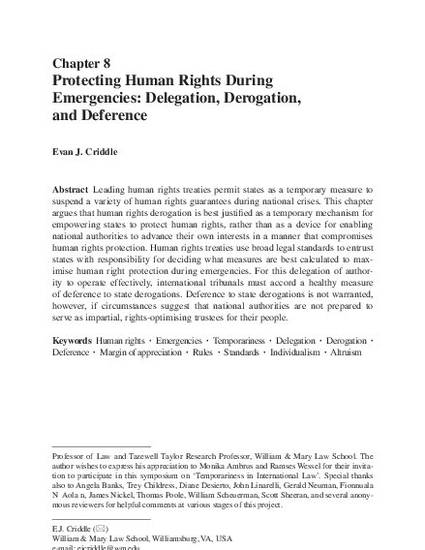
Leading human rights treaties permit states as a temporary measure to suspend a variety of human rights guarantees during national crises. This chapter argues that human rights derogation is best justified as a temporary mechanism for empowering states to protect human rights, rather than as a device for enabling national authorities to advance their own interests in a manner that compromises human rights protection. Human rights treaties use broad legal standards to entrust states with responsibility for deciding what measures are best calculated to maximize human right protection during emergencies. For this delegation of authority to operate effectively, international tribunals must accord a healthy measure of deference to state derogations. Deference to state derogations is not warranted, however, if circumstances suggest that national authorities are not prepared to serve as impartial, rights-optimizing trustees for their people.
Available at: http://works.bepress.com/evan-criddle/18/
